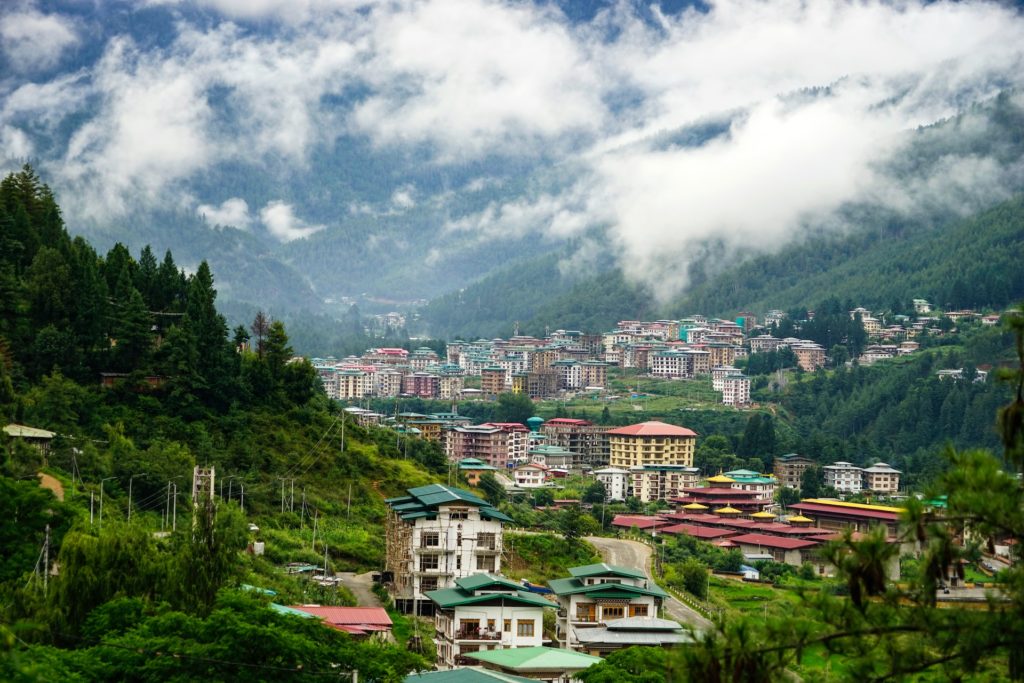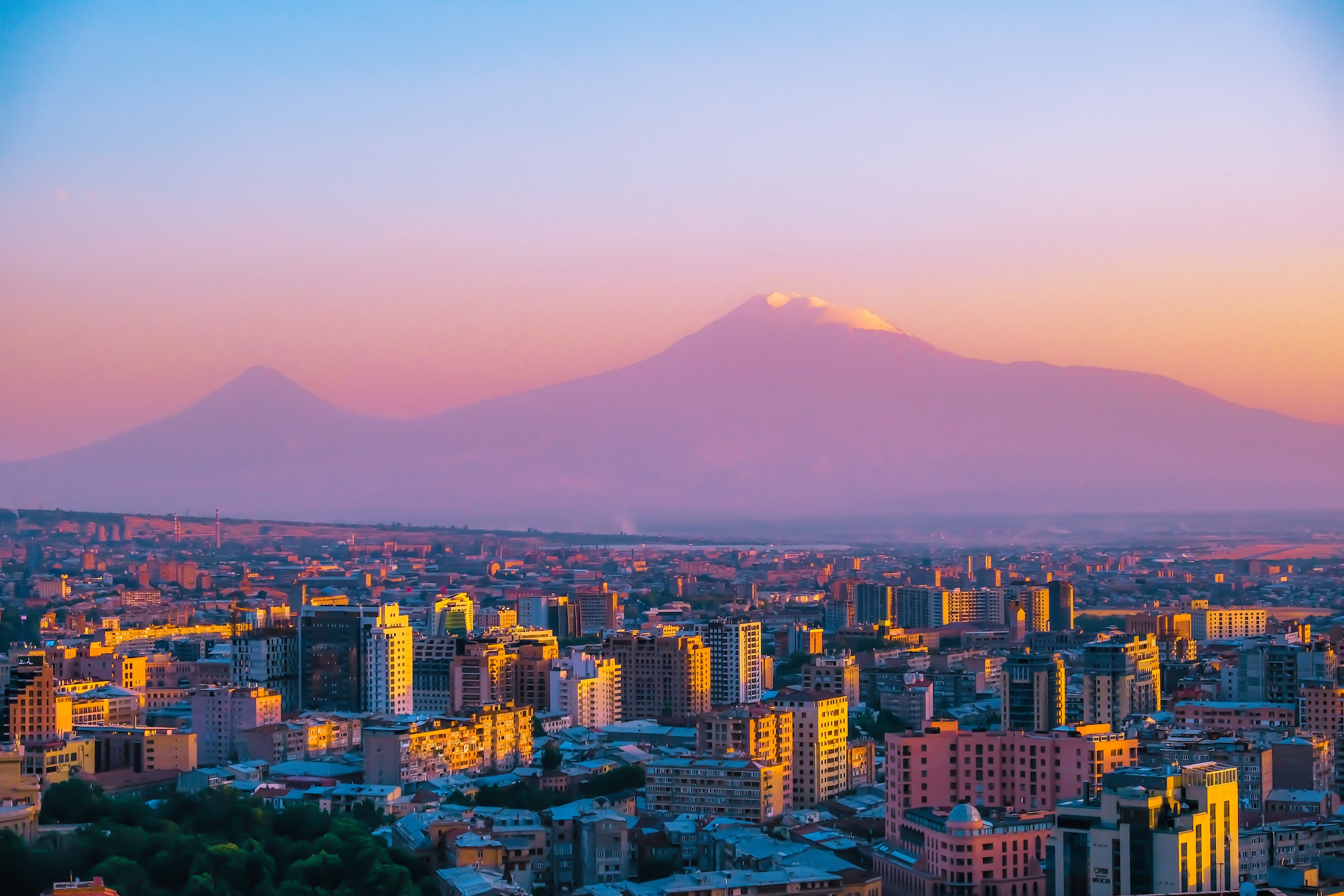Bhutan is a South Asian country located in the eastern Himalayan region. The country is landlocked between India and China; with a national character completely in contrast with its neighbors. While many countries strive to improve their GDPs and GNPs, the Bhutanese are strongly committed to improving their GNH (Gross National Happiness).
Bhutan is full of surprises such as the fact that it is one of the few countries that have negative carbon emissions. The government achieves this by relying mostly on clean renewable energy sources; hydroelectricity, wind, solar, etc. Bhutanese live simply, they still adorn cultural garbs, most of the population do not own a car, depending on indigenous medicine rather than neo-pharma, and so on.
However, regardless of the simplicity and adherence to strict eco-friendly policies, Bhutan has been successful in setting up a sustainable development model without damaging its forests, jungles, rivers, and farmlands. Popularly, Bhutan is famous for its unique culture, lifestyle, natural landscapes, and ancient cultural heritage.

Types of business structures in Bhutan
Bhutan’s economy heavily relies on agriculture and forestry and contributes 60% share in the total economy of the county. Foreign investors are provided with a friendly tax regime, a tax holiday of several years (depending on the sector of investment), and a number of other incentives.
The most common type of business structures incorporated in Bhutan are tabulated below:
| S# | Type of business structure | Local name | Min. paid-up capital required (USD) |
| 1. | Sole Proprietorship | Dag-Lop | No paid-up capital required |
| 2. | Partnership | Chek-Lup | $1,300 |
| 3. | Private Limited Company (Pvt.Ltd) | Druk-Khor | $6,600 |
| 4. | Public Limited Company (PLC) | Druk Public Limited Company | $132,000 |
| 4. | Limited Liability Partnership (LLP) | Druk-Phunsum-Tshogpa | $132,000 |
| 5. | Cooperative | Nangzhon | $130 – $13,200 |
Note that the minimum capital required for a Cooperative varies depending on the industry and sector the company does business in. For instance, an agriculture-related cooperative requires merely $130 while a leasing company requires at least $13,200 in paid-up capital.
Sole proprietary business
A single-person-owned business format most suitable for retailers, freelancers, shops, etc. doesn’t require paid-up capital or adherence to many regulations. The owner is solely responsible for all the debts and liabilities in a sole proprietary business.
Partnership
A partnership business is similar to a sole proprietorship but is more formal in nature. Additionally, it requires two or more people to form. Partners can be general or limited in nature, but in any case, they are personally responsible for debts and losses arising from the company.
Limited Partnership Company
An LLP is not to be confused with limited partners. Although it shares characteristics with a limited partnership company but differs in terms that the partners are treated separately from the company and are not personally responsible for debts and liabilities.
Private Limited Company (Pvt.Ltd)
A Pvt.Ltd company is probably the most popular business format in Bhutan. It has the characteristics of a public limited company but is subject to fewer regulations, is charged with fewer taxes, and enjoys many benefits that come with a PLC.
Public Limited Company (PLC)
A PLC is the most complex business structure. A PLC has a board of directors that has certain activities to perform in accordance with the law. Primarily, a PLC can raise capital through the public by selling its shares in the stock market.
Cooperative
A cooperative is essentially formed to benefit the members of the company. The members can be individuals or other private or government associations/departments etc. Cooperatives indulge in activities such as housing, water treatment plant, hospitals, and other welfare projects to benefit the members and the society around them.
Costs involved in the registration process of a company in Bhutan
There are several costs in the company incorporation process that the companies and owners must be aware of. Many costs are inevitable and pertain to the sector, industry, location, and nature of the business.
Here are a few costs that are most likely to be incurred.
Name reservation fee
Approximately $6.60 – This is a one-time fee paid to the Department of Trade, Ministry of Economic Affairs to reserve the company name.
Company registration fee
$66 – This is a one-time fee paid to the Department of Trade, Ministry of Economic Affairs to register the company.
Stamp duty
0.5% of the authorized capital – This is a tax paid to the government based on the authorized capital of the company. For example, if the authorized capital is $13,200, the stamp duty would be around $66.
Legal fees
This can vary depending on the lawyer or company registration agent hired by the company but typically range between $66 and $264.
Miscellaneous expenses
This may include notarization fees, translation fees, and other related expenses and can vary depending on the specific requirements of the company registration process.
Cost of doing business in Bhutan
The cost of doing business in Bhutan can vary depending on a number of factors, including the type of business, the industry it operates in, and the location of the business.
Below are some of the major costs associated with doing business in Bhutan:
Labor costs
The cost of labor in Bhutan is relatively low compared to many other countries, with the minimum wage currently set at approximately $1.65 per day. However, the availability of skilled labor can be limited, particularly in certain industries.
Taxation
Bhutan has a relatively low tax regime, with a corporate income tax rate of 20% and a personal income tax rate of 0-25% depending on income levels. Additionally, there are no value-added taxes (VAT) or sales taxes in Bhutan.
Infrastructure
Bhutan’s infrastructure is relatively underdeveloped comparatively, particularly in rural areas. This can lead to higher costs for transportation, logistics, and energy.
Import/export costs
Bhutan is a landlocked country and relies heavily on imports for many goods and services. As such, import duties and other costs associated with importing can add to the cost of doing business in Bhutan.
Regulatory compliance
As with any country, there are various regulatory requirements that businesses operating in Bhutan must comply with. These can include company registration fees, licensing fees, and ongoing compliance costs.
Overall, Bhutan has some cost advantages compared to many other countries in the region. It is important for businesses to carefully consider the specific costs and challenges associated with operating in the country before making any investments or decisions.







